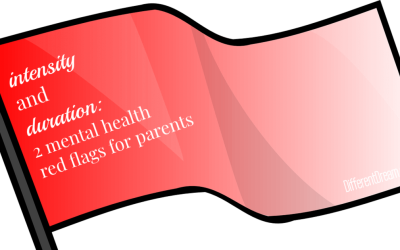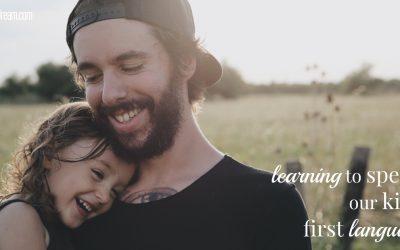When Parents of Kids with Disabilities Get Ahead of Themselves

When parents of kids with disabilities get ahead of themselves—and let me be clear, I’m speaking from personal experience here—they remind me of Jodi, a kindergartener I taught long, long ago.
She was the daughter of a family friend, and I’d known her since she was three. She was a bright, curious, articulate, organized, and driven preschooler. Before she set foot in my classroom, I knew she would be hard to keep up with once she got there.
The first day of school, I showed Jodi where to put her lunch box and tried to lead her into the classroom. She planted her little feet and looked me in the eye.
“What happens first today?” she asked.
“You put your school supplies in your desk.” I replied.
“Then what?”
“We’ll say the pledge.”
She waved my answer away. “No, not that. What are we learning first?”
“Oh,” I said. “Reading.”
“What happens during reading?”
I gave her my Cliff Notes version after which she asked, “Then what?”
“Recess,” I said.
“And after that?”
“Math.”
“What’s math?”At this point I put a stop to her grilling by saying, “Jodi, you’re getting ahead of yourself. You need to trust me to explain what comes next when the time is right. Now find your desk and unpack your school supplies.”
Grim-faced, she went to her desk and did as I’d asked. By the end of the day, she had experienced everything she’d wanted to know before school began. Her parents later told me she had an emotional meltdown after school and fell asleep during supper. Which goes to show that bright, curious, articulate, organized, and driven five-year-olds are still just five years old.
A few years later, our son was born and diagnosed with EA/TEF. Immediately after receiving the diagnosis, I prayed, “God,” I asked, “what happens next?”
He answered when the diagnosing doctor said our son should be life-flighted to a university hospital almost a thousand miles away for immediate surgery. In the intervening two days, I aimed a barrage of questions at God.
Do you like what you see at DifferentDream.com? You can receive more great content by subscribing to the monthly Different Dream newsletter and signing up for the daily RSS feed delivered to your email.
Photo by Edi Libedinsky on Unsplash
By Jolene
Jolene Philo is the author of several books for the caregiving community. She speaks at parenting and special needs conferences around the country. Sharing Love Abundantly With Special Needs Families: The 5 Love Languages® for Parents Raising Children with Disabilities, which she co-authored with Dr. Gary Chapman, was released in August of 2019 and is available at local bookstores, their bookstore website, and Amazon. See Jane Dance!, the third book in the West River cozy mystery series, which features characters affected by disability, was released in October of 2023.
Subscribe for Updates from Jolene
Related Posts
2 Mental Health Red Flags for Caregiving Parents
These 2 mental health red flags for caregiving parents can be used to assess whether it’s time to seek treatment for either a parent or child.
Transitioning Between Rhythms and Tempos
Music therapist Jim Gaven explains how his class transitioning between rhythms and tempos helps children more easily transition through life.
Love Is a Child’s First Language
Love is a child’s first language. By understanding attachment theory and stages of cognitive development we can better speak their language.






0 Comments